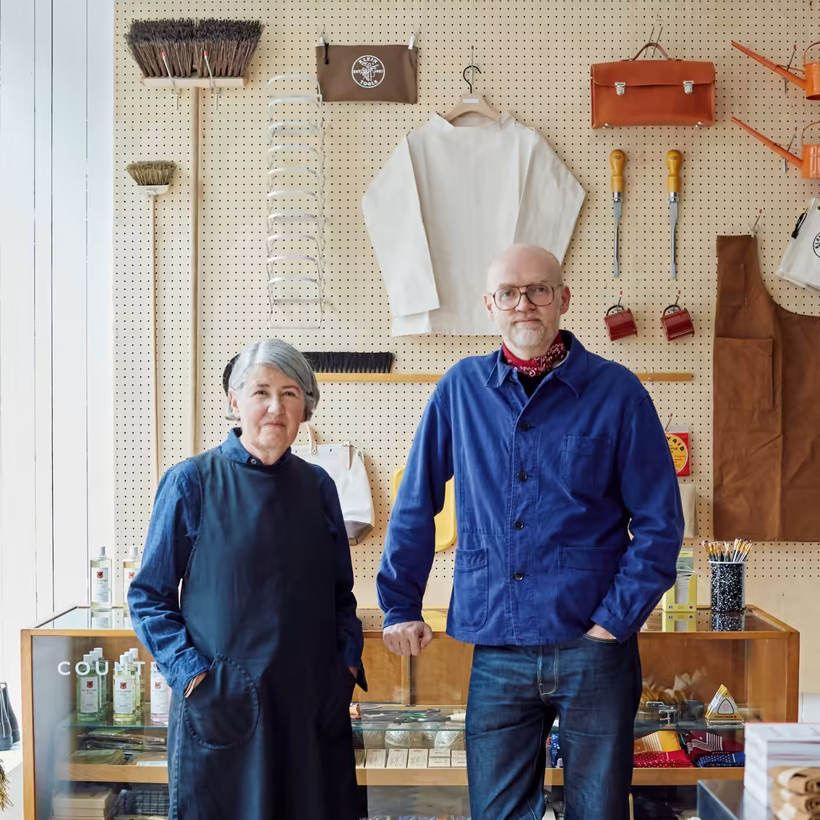In the summer of 2021, after delays forced by the pandemic, East London’s cult general store Labour and Wait finally opened its second domestic brick-and-mortar shop more centrally, in the West End’s Marylebone district.
Located on Dorset Street—500 feet from the Air Mail newsstand, on Chiltern Street—this new outpost from founders Simon Watkins, 57, and Rachel Wythe-Moran, 63, stocks most of the same perennially classic and impeccably curated household goods, genderless garments, and oddly essential miscellany.


